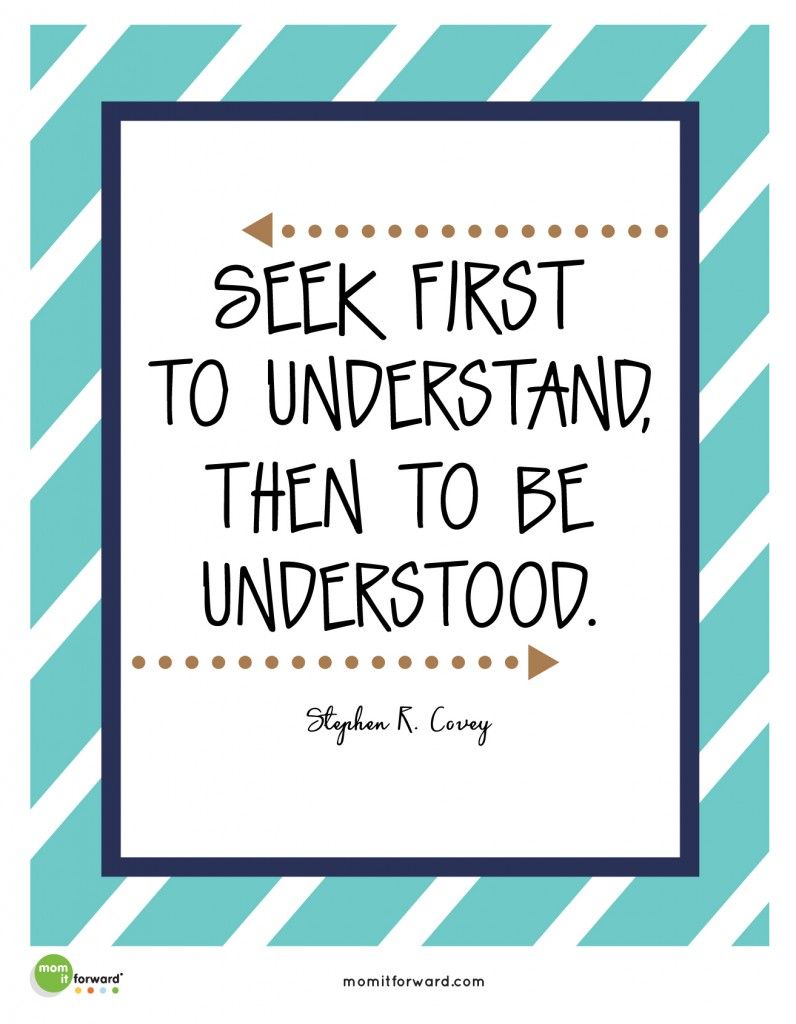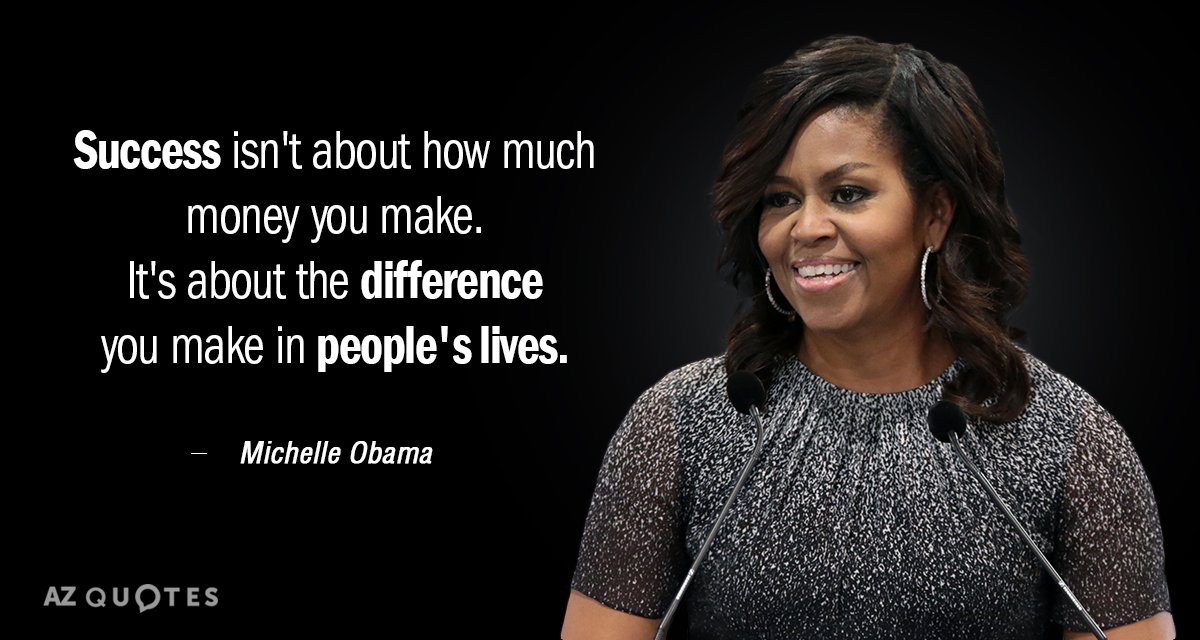|
As we muddle our way through this unique time in our lives, the notion of communication has come up so many times. Rest assured, this is not a post about politics, media, or anything (hopefully) controversial. On the contrary, I want to share that I truly believe in the power of effective communication, enough so that I wrote a book on it several years ago. I have learned a great deal since 2012, when that book was first published. Some tenets of the book are simply common sense, but then I ask myself, "Then why are we still struggling with them??" I think it is because we need reminders or we will slide back into our own bad habits. I'll highlight three of the points I feel are most important:
1. If it isn't helpful or kind or (I don't know if it is) true, I have no business sharing it: I have learned this lesson the hard way. You know the scenario. Someone says something or I hear something on the news or I read something in a magazine, and I commit the critical error of repeating it to another person. What's the real problem? I might have heard something, but that doesn't mean it is true, and it certainly might not be kind or helpful. I work a pretty amazing spiritual program that encourages me to examine that principle to the fullest extent. I actually have a great spiritual advisor who reminds me that it is absolutely none of my business what other people think about me, as they are going to form their own opinions of me regardless. But I am pretty sure I can lean people to my dark side if I get caught up in any of the drama or spectacle my part could play in it. So, for the most part, I follow this "rule of thumb" pretty closely. 2. Listen to each other versus listening to get ready to respond: I have fallen victim to this from both ends. Imagine you are out to dinner. Wow, maybe I should just leave that out there for a moment----imagine that you get to go out to dinner----some are still waiting months to do that. Just go down that road with me. Imagine you are out to dinner with a group of friends, masks or no masks, depending on the decade. You get into a conversation about politics (even though you had tried putting the kabash on all things political), and people begin talking over one another. It seems to me that, at this point, whether the topic is politics, religion, white privilege or how to potty train your child, people have begun talking to hopefully convince others that their own way is the highway. What I really think, internally, is that we do it to validate or internalize our own belief systems (like, I need to keep saying it out loud so I can continue to believe in this myth I've held true all my life, possibly). But what if....just what if...we listened to learn another person's truth and to welcome it? I am not saying I am any expert at this, by any means, but I will say I am trying to practice it. Why? Because what if...just what if...that myth I've been holding onto my entire life (or perhaps since I earned the right to vote) might need a tune-up or a fresh way of viewing things? Only through truly listening to another's truth would it be possible to accept or admit that I am changing my mind about my own myths. And change can lead to transformation, right? I always tell my adult participants with whom I'm blessed to work that "when I quit learning, I am going to quit teaching". And yet, every single time I teach, I learn something new----a new strategy, a new way of viewing something I have held true in my career, or even something new about myself. Therefore, as I grapple with all these new learnings, it is highly unlikely I will quit teaching for quite some time. 3. Relationships are seldom improved by emails and texts: This is a truth I am still constantly learning. It is a lesson I can say "I've got this now", and then suddenly, I am sucked into the vortex of "Oh crum, I did it again!!" Imagine the scenario in which you want to share some information with someone or ask a question. You email the person, explaining your position, and then asking a question which seems innocuous to you. And yet...the person on the receiving end is not inside your head or your heart and they have other things going on with themselves. Perhaps they just had a trail of emails that made them defensive. Your email ends up being the straw that breaks that camel's back, bringing that proverbial came,l to its knees. The person fires back an email to you laced with sarcasm and/or passive aggressiveness. And so it continues. What lessons have I learned from scenarios like this? a. Get off the dance floor. Do not feed the beast. If someone engages in an email war, it will not be won by anyone via email. Simply quit the dance and try a new way of communicating. b. I seem to have a short memory, as I do this every so often despite knowing it might not turn out well c. Picking up the phone is a great alternative, as we can then hear expressions in people's voices, subtle innuendos that put us at peace, whereas the written word carries too many connotations that can be misconstrued in a negative fashion. d. Honesty is the best policy. If I make a mistake, I need to own up to it. For example, "I am so sorry I said 'XYZ'. It was not my intent for it to come off in any hurtful manner, but I can certainly see how it might have done the very thing I was trying to avoid." You notice the missing word? "BUT". The word "but" negates every single thing I said before. For instance, "I am so sorry I said 'XYZ', but you really shouldn't have fired back with the sarcasm either." What's the difference? Night and day, as far as I'm concerned. Just for today, perhaps we might consider the way we say things and how we want our relationships with people to be nurtured. I can honestly say I love my friends, family, co-workers, and acquaintances through work and play; I would never intentionally hurt anyone through my communication. But the fact remains that we likely need these reminders to be more effective in our communication. I know that, having written this blog, I will be more cognizant of my verbal and written words for a while, at least until that time in which the same issue crops up again, and I'll have to blog to atone for my sins again. Happy Communicating, Shelly
0 Comments
 I think Stephen Covey knew exactly what he was talking about (as if he needs my endorsement, right?) when he came up with the 7 habits. One of Dave's and my favorite ones is "Seek First to Understand, Then to Be Understood" (Covey, 2004). I know you are sitting on the edge of your seat in anticipation of me telling you why. I believe that, with all that is going on in the world right now, it is a perfect time to drag this one out from the corners of our minds (dust-bunnies and all) and ponder on it. We are living in a world in which people are "unfriending" friends and family because someone said something with which we disagreed. And, boy, are there things on which we disagree. But Covey's "habit" tells us we should simply see (not believe, necessarily) another's point of view before having our say about the topic. Once every two weeks at our Episcopal church in Tucson, we practice what we call "For God's Sake, Listen", which is simply a listening protocol designed to get those of us who are interested to think about what we think about a particular topic. Yes, you read that correctly. We are tasked to think about our own thinking on a subject such as coffee makers (yes, that was really one of first topics), write our thoughts, feelings, and wonderings about the topic, then listen while, one by one, each of us (in our groups of approximately 4 - 5 people) shares what we wrote. The kicker is: one person shares, then the next person shares without commenting on the 1st person's share, then the next person does the same, and so on, until everyone in the group has simply shared their initial thoughts. Then, and only then, do we open it up for discussion. But the point is: the first step was simply listening to all people in the group share their own truth. The next part is having a spokesperson from each group share highlights from the discussion with the whole group. Not every week is about coffee, of course. Today's topic was: white privilege. We conducted it over a Zoom meeting after our "substitute priest" for the day had preached on the topic of his own experience with white privilege. The experience for today's session of "For God's Sake, Listen" was interesting, as we broke into breakout rooms on Zoom, but the protocol remained the same, allowing people to first share their own truth then listening to others' perspectives. Some people are simply in the question-asking phase; others are in the "I've experienced discrimination in other ways" phase; others, still, are in the "I recognize this is a huge problem; I just don't know what I can do about it". I think this is a perfect example of seeking first to understand, then to be understood. What better time to listen to the experiences of our friends who are Black before we start telling how we feel. As for "Black Lives Matter", we've all heard the rebuttal of "All Lives Matter". A dear friend of mine (with whom I did a Habitat for Humanity build in Africa two years ago) had an answer that I just loved, mostly because it put it in an analogy I could "get". She said, "Of course all lives matter, but right now, the house of our Black friends is on fire, so we need to focus on that one right now." I suspect the house has been on fire for a couple of hundred years, but we are hopefully finally taking notice. Seeking first to understand, then to be understood helps me put this in perspective. I hope it does for you, as well. As an lifelong educator, I have a unique perspective that involves how this oh-so-important topic impacts our schools. There is no question, there is an issue of the "haves" and "have-nots" but there has also always been a question swirling around my mind about how we think we can make public schools that are struggling perform better if our "quick fix" seems to be to create charter schools which take students (and the money that goes along with those students) away from those schools. Shouldn't we, instead, focus on boosting those struggling schools? One of my dear doctoral students just virtually graduated yesterday, and as I saw Dr. Reggie Wicker's face light up the screen on the live Facebook graduation, I kept thinking about his own dissertation that examined how we can increase the Black male mentorship of Black boys in schools. Will his dissertation change the world? Maybe not. But I have a sneaking suspicion that it is going to make a difference in the schools in which he works. I am privileged to have worked with him, and I thank God for allowing him to give me some new insight and perspective on this topic. Just for today, maybe we could consider what we believe about "white privilege" and how we have accepted any myths we have grown up believing. Perhaps might be the time to examine those myths and what we think, feel and wonder about those myths. And above all, "For God's Sake, Listen!" Happy Communicating, Shelly Covey, Stephen R. The 7 Habits Of Highly Effective People: Restoring The Character Ethic. New York : Free Press, 2004.  I taught Character Education lessons to students for about 16 years as a guidance counselor and principal in middle and elementary schools, and I can honestly say I never asked this question. We did talk about the courage certain characters in history and fiction possessed; we talked about ethical dilemmas and if there was ever a time when it was okay not to be honest; we discussed how standing up for the right thing may be hard to do but it's the right thing to do; we created skits about good character; we even adopted Stephen Covey's 7 habits of highly effective people as our school theme to encourage good character among students, staff and faculty, and parents. And yet, we neglected to talk about popcorn. Today, our Episcopal Diocesan Bishop talked about popcorn, however, and it has really made me think. She said she was in a seminar a few years ago when the presenter mentioned that a popcorn kernel was the pinnacle of integrity. The Right Reverend Jennifer said she wrestled with it for a couple of days, but when the speaker brought it up again, she had to say something. Up went her hand, she was called on, and she said, "I just don't understand. Isn't the popcorn kernel's purpose in life to become popcorn?" She argued that when a kernel is fully formed or living with integrity (as it is doing its primary purpose), it is a piece of popcorn. The presenter had other ideas, though, and proceeded to argue his point. He said, "The popcorn kernel contains a droplet of water. When heated, the water transforms into steam, and it builds up pressure, which causes the kernel to pop." He went on to say that when a kernel remains a kernel, it is showing integrity by not succumbing to "pressure" to be something else. Too deep? I don't think so. I think it is actually a great topic to pose to students and adults alike. At what stage is a kernel of popcorn demonstrating the most integrity? I sure would be interested in hearing the thoughts of others, as it has stirred up some pretty great conversation at our house. Dave even brought in the notion of "old maids". You know, we've all had the experience of thinking we were putting what looked like a fully formed piece of popcorn in our mouth, only to bite down on a hard kernel. What a disappointment, especially if it results in a trip to the dentist! Does the partially popped kernel contain any amount of integrity? I would argue a vehement "No way, Jose!" as it is quite deceptive and cunning. What's the point? I believe that our Bishop posed the question so that we do just that---think. I love thinking, and I love thinking about my own thinking---the true definition of metacognition, right? I think, just as with any ethical question I might have posed to my students when I was a counselor or principal, the point is not just to answer the question above. In fact, if we stop there, we've missed the point entirely. We need to follow up with: For what reason do you believe what you believe about the kernel of popcorn? Without the follow-up, the question might just be silly. But if I say I truly believe the kernel is at its fullest development, including spiritually, physically, cognitively, and mentally when it is "popcorn", I can begin talking about what it means to be at my fullest development in each of those areas. Thinking breeds thinking, in other words. Some people might say, "We have too much to teach in school without adding something else to the curriculum". I firmly believe that character education isn't something else we teach, but rather it should be infused into every single thing we teach. When talking about the Civil War, doesn't the issue of family loyalty versus "what you believe" arise? When teaching about formulas in trigonometry, what would you do if you discovered a new formula---would you sell it to the highest bidder? When teaching about science, doesn't the evolution/creation topic almost always arise? The cool thing, to me, is that everyone can hold their own beliefs but be willing to listen to those of other people in class. I hold a firm belief that if we taught our students how to listen while suspending their own inner agendas, those same students would become adults who might be able to do the same thing. And then...what a wonderful world it would be! So, what do you think about the popcorn kernel?? Happy Communicating! Shelly  When you were a little girl or little boy, what were your dreams for your future? Did you imagine you would be married with children? Did you want to become a marine biologist? Maybe you wanted to be the first Black president of the United States. As far as I can remember, I always wanted to be a teacher. I lined up my stuffed animals (they were obedient little pupils, but it was tough to do any heavy discussions with them), and I taught them multiplication tables and read to them. I suppose I had hopes and dreams to get married to a wonderful man, but no dream truly could have come close to the man I married. Dave not only is the rock when I have needed that support, but he has also encouraged me to continue to reach all my educational dreams. Learning has always been one of my favorite hobbies (next to reading for pleasure), and I couldn't believe it when I was accepted to Trinity University in San Antonio that blessedly came with a hefty scholarship in education. Were it not for that scholarship, there is no question that I would have gone to college elsewhere. That would have been sad, as my two best friends in the entire world (along with so many other lifelong friends) were "found" at Trinity. If you haven't ever been there, I must say it is likely one of the most beautiful campuses I've ever seen. From our dorm to the library, it was a good little walk, but that kept the "freshman 15" down to more like "freshman 10". I loved and adored everything about the school, including having the gift of working in the Education Department all four years of my time there. It was somewhere during maybe the 2nd or 3rd year of my experience at Trinity (which, by the way, led me to change my major from simply "Education" to Special Education and the myriad of amazing experiences that came along with that) that I said aloud, "I would love to work here someday." Now, that was a dream. In the next 30 years, I've been blessed to teach students with severe emotional/behavior disabilities as well as students with developmental difficulties. I credit my education at Trinity for preparing me in so many ways for working with those students who touched my life forever. After teaching for several years, Dave and I moved to New Mexico where Dave's work afforded me the blessing and opportunity to earn my master's degree in Counseling and Educational Psychology. I knew that I would never get out of the education realm, but I figured that degree might help me understand the students with whom I worked on a deeper, perhaps more emotional, level. Dave always swears I wanted to get that counseling degree so that I could "psychoanalyze" him, but I promise that was not my primary motive. After getting a chance to be a school counselor for several years, I was once again "blessed" with the opportunity to apply for and get the job as principal at the best elementary school in the world (good thing it didn't make me biased, right?). I learned so very much from my work with teachers, staff, parents, and students who truly grew to be family to me. Along the way, I believe I may have mentioned to Dave that I would love to keep learning, so I went back to school again to get my doctorate in Curriculum and Instruction. Since then, I have gotten the opportunity to become a professor at a couple of online universities and teach teachers and administrators about effective teaching around the world as a Danielson consultant. As my dad still lives in San Antonio (not to mention my best friend from high school), I have traveled there so very many times over the years. Most trips back necessitated a trip to Trinity just to walk or drive through the campus. A girl could dream, and dream I did: of someday becoming a professor in the Education Department tucked among beautiful trees and architecture. I do believe that dreams come true---marrying Dave is living proof of that. And now, my pinnacle professional dream has just come true, as I have just been hired to become a professor of Special Education at....wait for it...Trinity University!! To say I am "over the moon" excited about the opportunity would be the understatement of the century. Giving back to the university that began my post-high school education and is mired in so many beautiful memories is likely one of the best dreams come true! But here's the thing that Dave always tells me, and someday maybe I will believe it for myself: dreams don't just come true; we must keep those goals and dreams in front of us and consistently work towards them. After listening to Michelle Obama's "Becoming", digitally, while I run, I also loved watched her 90 minute video of her book tour. She has so many quotes about opportunities, lost opportunities, making your own way in the world, and believing that you can achieve your goals. I am living the dream, for sure, and I cannot express how much I look forward to working at a school that gave me a chance when monetary circumstances in our family would never have afforded me that opportunity. Trinity...here I come!! Happy Communicating, and may all your dreams come true! Shelly |
Shelly ArnesonCategories |



 RSS Feed
RSS Feed